Cale quit right after White Heat followed the debut album into obscurity, and was replaced by popster Doug Yule, a nice-meanin' kinda guy who, unfortunately, earned a strange reputation among Velvetheads which I could only compare with the reputation of Patrick Moraz among Moody Blues fans. I do not think, though, that it was Yule's fault that the band moved away from feedback experiments and began rapidly advancing in the direction of becoming a 'normal' band; rather it was the lack of Cale, who was indeed the catalyst for all the weirdness. Anyway, this album is a perfect start for your VU collection - especially if you are, like me, upset about the likes of 'Sister Ray' or 'European Son'. I'd say that overall the songwriting level is a bit of a let down as compared to Nico: few of the songs managed to grapple me at once, but, once they did, they managed to convert me. So this one wins out as the best VU album simply because of its consistency (I mean, Loaded is also consistent, but it's a bit too un-Velvetish to get all the honours).
VU is actually quite different-sounding from the early stuff. If you ask me, the music perfectly matches the album cover - our heroes, dressed in perfectly normal and homely clothes, are sitting on a perfectly normal and homely sofa in what looks like a perfectly normal and homely living-room (okay, maybe it's a basement, it's dark in there; even so, it's a perfectly normal and homely basement). And the music, too, is inviting and homely, with the production stripped-down to an absolute minimum - most of the time, it's just a quiet guitar, soft percussion and an uninvolving bassline. And it's horrendously quiet - the guitars are either acoustic or, if they are electric, they're soft and inoffensive, the singing is inobtrusive and a bit muffled, and even when there are rockers ('What Goes On', 'Beginning To See The Light'), there's not an ounce of aggression or even energy about them. This is the kind of album that you are indeed able to make in your living room - just set up a recorder and a couple of guitars, and you can knock it off in two hours. Not that I actually imply that they did knock it off in two hours, mind you, because it's obvious that it took a long time to pen these terrific songs; but somehow I doubt that they really spent too much time in the studio. In any case, they probably didn't have much of a budget to experiment with sitars or phasing, what with their total lack of commercial success and all.
Of course, the main drawback of this approach is that for many a weak soul among us the record will serve as a great cure for insomnia - I myself sometimes feel like dozing off at the last minutes of 'Pale Blue Eyes' or even 'Candy Says', my favourite song on here. But that's not because the songs are boring, mind you, or bad, or poorly written. They're more like great lullabies, see - now you wouldn't want to call a lullaby 'boring' because it makes you go to sleep? That's what lullabies are for! If you really fall asleep to the sound of 'Candy Says' or 'Jesus' or 'Pale Blue Eyes', that's quite healthy. In fact, this is one excellent album to put on before turning off the lights (maybe even after turning them off) - so nice and soothing and calm and brilliant. Kinda like Dylan's Selfportrait, but don't kill me for saying that. Selfportrait is pretty underrated, by the way.
In any case, like I said, there are tons of great songwriting here. The only track that somehow connects it to the 'bizarreness' of old is the nine-minute 'Murder Mystery', a 'psycho' experiment where all the band members pronounce endless stream-of-conscience speeches all at once that they set to two alternating melodies. This can be mind-numbing at times, but both the melodies are cleverly constructed, and the piano coda is nice, too, so, if not a masterpiece, the number is at least much more tolerable than 'European Sun' or even 'Heroin'. Plus, it's got Moe Tucker singing (see below)!
Elsewhere, you get just a couple buzzing rockers - 'What Goes On' is partially ripped-off from the same-titled Beatles song (for some strange reason, nobody notices that, even if Lou croaks the line 'What goes ooon in your mind?' exactly in the same way as Ringo does it), but only partially, and the chainsaw solo in the middle is by far the most rousing moment on the whole album; and 'Beginning To See The Light' has some subtle repetitive charm of its own, like in 'Waiting For The Man', only this time there's no real weirdness around, just a crazy simulation.
But the album's true bliss lies not in the rockers - Lou and company have striken upon a golden mine of balladry, alternating one minor chef-d'oeuvre with another. 'Candy Says' is a song that heralds a series of firsts: it has the first time Doug Yule is singing lead vocals (and he does it pretty well, too), it's the first song with the title constructed according to the formula '[female name]+says' (cf. 'Stephanie Says', 'Caroline Says', 'Lisa Says', ad infinitum), and it's also the first song in the Velvets' catalogue that could be called 'sappy' - but it's the wonderful kind of sap that makes you shed tears and not feel even a little guilty. The melody is so awesome, and Yule croons out the lyrics devoted to an Andy Warhol drag queen with such tenderness and devotion, and the little silly 'doo-doo-wah' chants at the end are so cute, that it's easily the best number on the album. 'Pale Blue Eyes' has been called one of the world's greatest love songs by the Rough Guide to Rock, and while I could hardly agree, it's certainly charming and extremely touching in its almost childish naivety. And, of course, the lines 'thought of you as my mountain top/thought of you as my peak' are sheer genius. And 'Jesus'? Why - that's almost a religious hymn, people, and they seem to take it seriously. 'Help me in my weakness 'cause I'm falling out of grace'. What the hell is that? And, most of all, why the hell is it so beautiful? If you listen hard, you'll understand that it's actually based on a blues pattern, but they twist the melody in such a dazzling way that you could never guess. I only guessed after looking at the lyrics sheet...
Just to remind you, though: this is the Velvet Underground. Dem Velvets ain't no sissy gospel revival schlock. Dem Velvets used to sing 'bout SEX, remember that? That's why they have 'Some Kinda Love' on here, too - you can actually hear Lou giggle as he grumbles out: 'the possibilities are endless/And for me to miss one/Would seem to be groundless'. Indeed; if it's possible to put this jolly ode to kinkiness on the same side with a humble religious prayer, then the possibilities are truly endless. Another possibility is croaking out a convincing 'soul' tune ('I'm Set Free'), and another possibility is to let Moe Tucker bring the album to a close with a short, acoustic-driven ditty about death. Actually, if 'After Hours' hadn't been undermined by the steady 'grunt - grunt - grunt - grunt' of Yule's bass holding up the acoustic guitar, it could have easily been mistaken for a 'live' recording of a 'homemade' tune sung by some camp girl taking a hike with her friends. Poor Moe, she can't sing at all - she's terribly off-key, but in a certain way, this only makes the song more charming and innocent. Just as 'Candy Says' is the perfect album opener, 'After Hours' is the perfect closer to the VU's most consistent, listenable and impressive fourty-five minutes.
Why this record never sold much is a mystery to me; the only explanation I can offer is that the rock public was by then far more keen on bombastic, pretentious types of music - hard rock was in full bloom, and prog was just taking off. In that way, this album's initial failure to gain the public's eye can probably be compared only to the bombing of the Kinks' Village Green: both were quiet, humble, moderate records that never guaranteed much excitement but should be listened to in a relaxed, self-composed condition, with no drugs or stimulants in sight. Fortunately, time has corrected that mistake, and we should finally give both of these classics their due. So go out and buy it today, if your parents never bothered to buy it thirty years ago!
(from George Starostin's Reviews)
Upon first release, the Velvet Underground's self-titled third album must have surprised their fans nearly as much as their first two albums shocked the few mainstream music fans who heard them. After testing the limits of how musically and thematically challenging rock could be on Velvet Underground & Nico and White Light/White Heat, this 1969 release sounded spare, quiet, and contemplative, as if the previous albums documented some manic, speed-fueled party and this was the subdued morning after. (The album's relative calm has often been attributed to the departure of the band's most committed avant-gardist, John Cale, in the fall of 1968; the arrival of new bassist Doug Yule; and the theft of the band's amplifiers shortly before they began recording.) But Lou Reed's lyrical exploration of the demimonde is as keen here as on any album he ever made, while displaying a warmth and compassion he sometimes denied his characters. "Candy Says," "Pale Blue Eyes," and "I'm Set Free" may be more muted in approach than what the band had done in the past, but "What Goes On" and "Beginning to See the Light" made it clear the VU still loved rock & roll, and "The Murder Mystery" (which mixes and matches four separate poetic narratives) is as brave and uncompromising as anything on White Light/White Heat. This album sounds less like the Velvet Underground than any of their studio albums, but it's as personal, honest, and moving as anything Lou Reed ever committed to tape.
(by Mark Deming, All Music Guide)
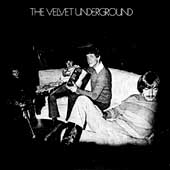
 Inselplatte #7 in Jahresliste
Inselplatte #7 in Jahresliste  Plattentipp
Plattentipp 










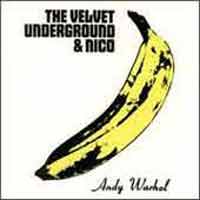
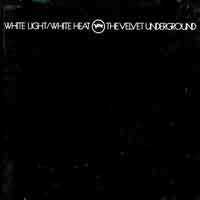

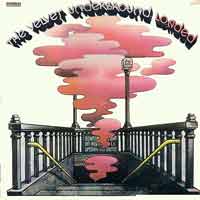
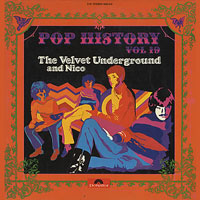
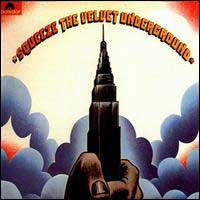
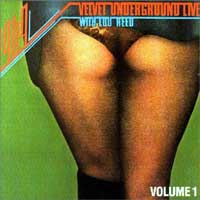
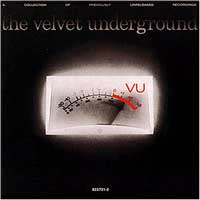
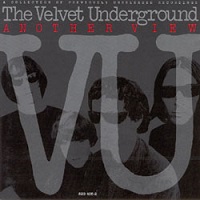
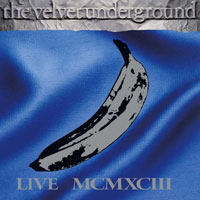




 #262 Virgin/Colin Larkin(2000)
#262 Virgin/Colin Larkin(2000)



 #191 Rock Critics Choice(1978)
#191 Rock Critics Choice(1978)
 eins von 1001 Alben, die Ihr hören solltet, bevor das Leben vorbei ist! (2008)
eins von 1001 Alben, die Ihr hören solltet, bevor das Leben vorbei ist! (2008)  Velvet Underground
Velvet Underground 